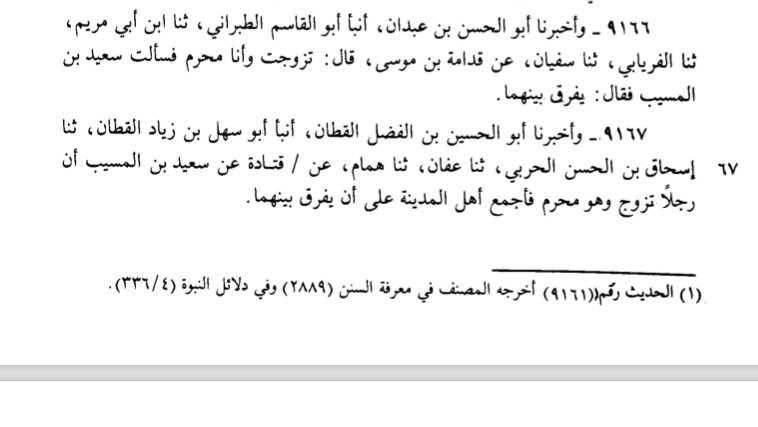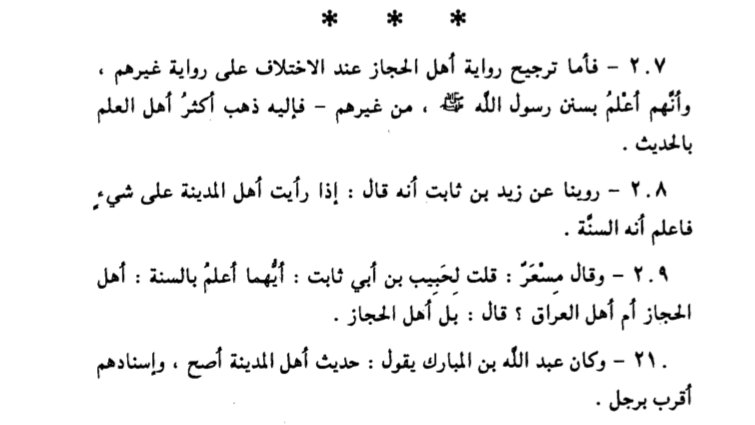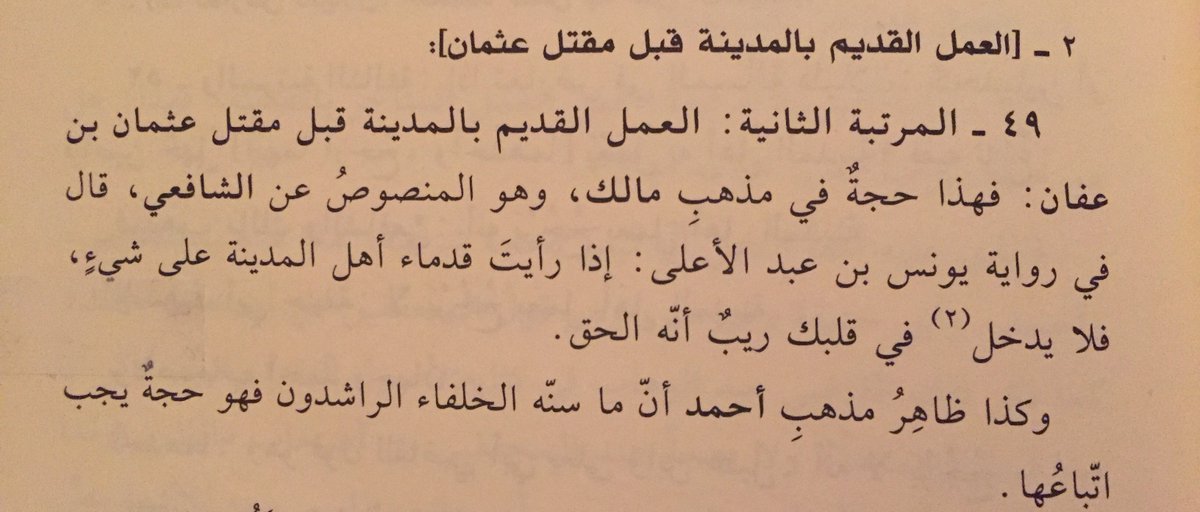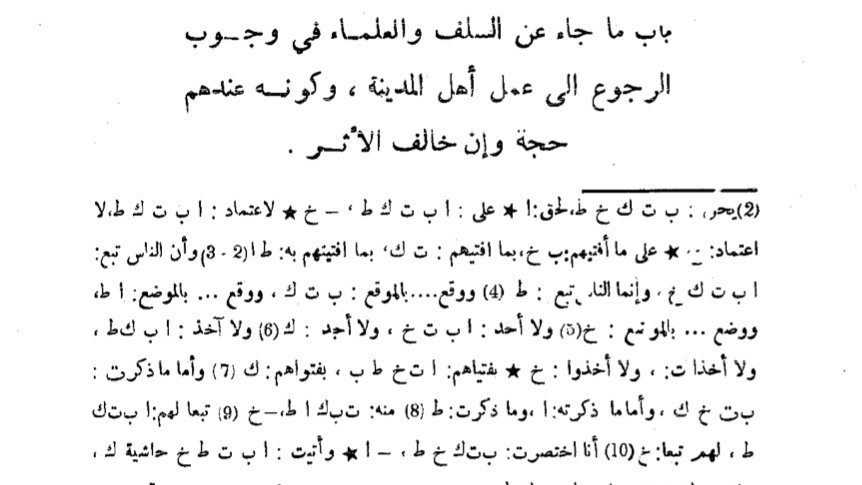THREAD: Response to those who criticize the principle in the Maliki school "Actions of the people of Madinah".
In the Maliki school, a major principle in deriving evidences is the actions of the people of Madinah, which is the collective practice of the inhabitants of Madinah.
In the Maliki school, a major principle in deriving evidences is the actions of the people of Madinah, which is the collective practice of the inhabitants of Madinah.
Many criticize this thinking that Malik would take the random general practices of the people of Madinah as evidence in the Shariah.
First of all, one can find numerous narrations of the salaf supporting the principle of the actions of the people of Madinah.
First of all, one can find numerous narrations of the salaf supporting the principle of the actions of the people of Madinah.
Saeed b. Al-Musayyib (rahimahullah) from the Tabi& #39;in said regarding marriage in a state of ihram: “It is the consensus of the people of Madinah that the married couple should be separated”. (Sunan Al-Baihaqi)
It was narrated that the Sahabi Zayd b. Thaabit (RadiAllahu 3anhu) said: "If you see the people of Madinah upon something, then know that it is the Sunnah."
(Ma3rifah Sunan Al-Athaar- Al-Baihaqi)
(Ma3rifah Sunan Al-Athaar- Al-Baihaqi)
Imam Al-Shaafii (Rahimahullah) said: "If you see the elders of the people of Madinah upon a matter, then no doubt should enter your heart that it is the truth."
(The authenticity of the principles of the school of ahl al-Madinah- Ibn Taymiyyah p.31 Edition Dar Al-Qalam-Damascus)
(The authenticity of the principles of the school of ahl al-Madinah- Ibn Taymiyyah p.31 Edition Dar Al-Qalam-Damascus)
Al-Qadi Iyadh in his book Tartib al-Madarik has a whole chapter called: “What reached us from the Salaf & scholars in returning to the actions of the People of Madinah, & the fact they consider it as a proof even if it may go against the athaar.”
Secondly, in reality, the actions of the people of Madinah can be divided into two categories:
1-What’s from the way of Naql & Hikayah (reports & anecdotes, such as the measurements of Saa3 & Mudd -widespread measurements used in Fiqh- or the description of the Adhaan).
1-What’s from the way of Naql & Hikayah (reports & anecdotes, such as the measurements of Saa3 & Mudd -widespread measurements used in Fiqh- or the description of the Adhaan).
This is considered an evidence by everyone, not just Malik. Basically these are the actions of the people of Madinah that have come via chains of narrations all the way back to the Prophet (Peace be upon him).
2- What’s from way of ijtihad & istinbaat (judgements & derivations) & this is considered an evidence by the later Malikis, specifically from the Maghreb (North Africa) as deduced by Ibn Taymiyya. This basically refers more generally to the "opinions" of the people of Madinah.
Some of these later Malikis would quote as evidence the virtues of the city of Madinah, which is problematic, as there is no link between the virtues of the city of Madinah & the actions of its inhabitants of the later generations.
So the question now is, why is Malik and his madhab singled out for considering the actions of the people of Madinah as evidence, if pretty much all the scholars agree on the validity of the first category?
The answer is, firstly Malik & his madhab would explicitly mention it as “actions of the madinans”… whereas the other schools of thought & scholars would simply call it “ahadith, narrations, reports etc”.
Secondly, in a case when two ahadith would seemingly contradict each other, Malik would do Tarjih (i.e. choose or prioritize) based on the actions of the madinans...whereas most scholars would just do Tarjih based on the general rules of usool al-fiqh.
Conclusion: Malik and all the other scholars agree on the fundamentals of the use of the actions of the people of Madinah as an evidence in the Shariah and it’s use by Malik & his companions isn’t as farfetched as some people tend to think.
For more reading on this issue, Ibn Taymiyyah has a book called: (صحة اصول مذهب اهل المدينة)
“The authenticity of the principles of the school of the people of Madinah.” There are many other books on the subject. Allah knows best.
“The authenticity of the principles of the school of the people of Madinah.” There are many other books on the subject. Allah knows best.

 Read on Twitter
Read on Twitter





